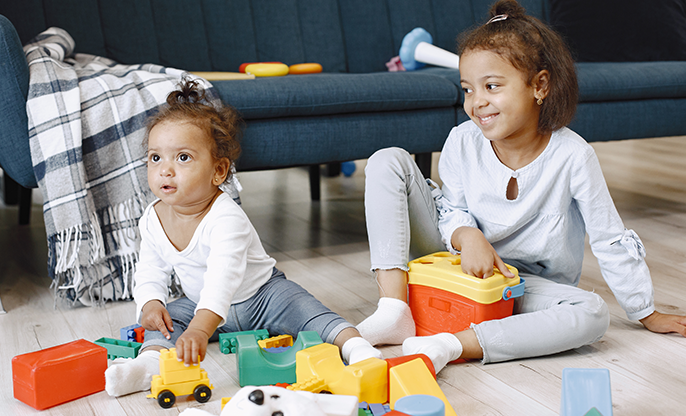
Temperament: what it is and why it matters
As a parent, you probably know that no children are the same. Even if your kids are biologically similar, each one has their temperament and personality. Understanding personality and character can help you be more effective at parenting, leading to a better relationship with your kids.
What Is a Child's Temperament and Why Does It Matter?
Simply put, it's a child's natural disposition towards the world around them and how they respond to various stimuli. It can even determine the kind of parent you need to be for them.
It's made up of three qualities:
Reactivity: how a child reacts to events, reactive children tend to feel strongly.
Self-regulation: how much control they have over their behaviour.
Sociability: how comfortable children are in new experiences and meeting new people.
All children need understanding and support to grow into themselves regardless of their temperament. As a parent, understanding the different types of temperaments can help you better appreciate their personality and be equipped to respond to their needs.
Generally speaking, temperaments in children can be divided into four groups:
Sensitive: These children tend to get overwhelmed easily and may cry or be easily frustrated.
Active: Children in this group are usually more active than other kids and are often resistant to structure and organization.
Easygoing: These children are usually more laid back, accepting of their environment, and adaptable in most situations.
Slow-to-warm Up: These children adjust to new people, activities, or environments, but it takes them time.
It's important to note that temperaments can change.
Adapting Parenting Techniques
When it comes to parenting, one size doesn't fit all. Parenting techniques need to be tailored to the temperament of your child.
Parenting a More or Less Reactive Child
Providing a secure and predictable environment is helpful for more reactive children. Incorporating plenty of predictability and familiar routines can help soothe a child with a reactive temperament as they need security and consistency in their lives.
Parenting a More or Less Self-Regulated Child
For more self-regulated children, positive reinforcement is vital. Children with this temperament respond well to rewards for success, and it can be helpful to encourage them in productive activities which foster autonomy and independence.
Parenting a More or Less Sociable Temperament
For children with more sociable temperaments, parents need to focus on relationships rather than tasks. When dealing with this type of temperament, parents should focus on helping kids build interpersonal relationships, fostering communication skills, and providing plenty of opportunities for socialization both at home and in the community.
Parenting children with different temperaments can be challenging, but it can also be rewarding. However, it can seem daunting, and getting to know your child's temperament can make you more thoughtful and help you make deliberate decisions regarding parenting. Understanding a child's character can help parents provide the right kind of guidance and support to their child to maximize their growth and development.







